John Rankin Gamble | |
|---|---|
 1893 lithograph of Gamble | |
| Member of the U.S.HouseofRepresentatives from South Dakota's at-large district | |
| In office March 4, 1891 –August 14, 1891 |
John Rankin Gamble | |
|---|---|
 1893 lithograph of Gamble | |
| Member of the U.S.HouseofRepresentatives from South Dakota's at-large district | |
| In office March 4, 1891 –August 14, 1891 |

Granville Gaylord Bennett was an American lawyer who served as a justice of the Supreme Court for the Dakota Territory and as a delegate to the United States House of Representatives. He was the presiding judge at the trial of Jack McCall for the Aug. 2,1876 murder of Wild Bill Hickok in Deadwood, Dakota Territory. This trial was held in Yankton, the then headquarters of the Territory. Judge Bennett later was assigned to Lawrence county and moved his family there.

Walter Atwood Burleigh was an American physician, lawyer, and pioneer. He represented the Dakota Territory as a non-voting delegate to the United States House of Representatives.

Oscar Sherman Gifford was an American lawyer of Canton, South Dakota. He served six years in the United States House of Representatives, first as the non-voting delegate from the Dakota Territory, then as a full member of the House from South Dakota.

Jefferson Parish Kidder was an American lawyer and jurist. He served as the non-voting delegate from the Dakota Territory to the United States House of Representatives. Kidder was the only Democratic lieutenant governor of Vermont until John J. Daley in 1965.

George Arthur Mathews was an American lawyer of Brookings, South Dakota. He was active in the government of the Dakota Territory, and was a territorial delegate to the United States House of Representatives.

Granville Henderson Oury was a nineteenth-century American politician, lawyer, judge, soldier, and miner.
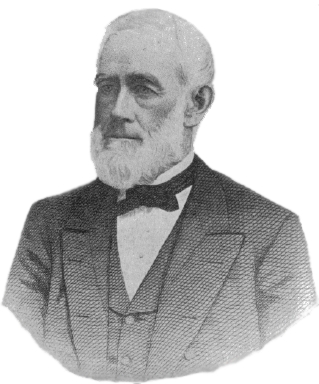
William Alanson Howard served as a member of the United States House of Representatives from Michigan from March 4, 1855 to March 3, 1859 and from May 15, 1860 to March 3, 1861. Howard was the sixth Governor of the Dakota Territory from 1878 to 1880.
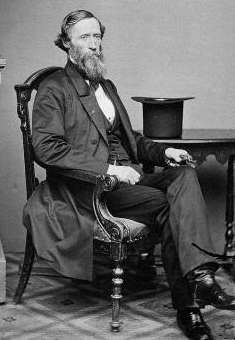
John Blair Smith Todd was a Delegate from Dakota Territory to the United States House of Representatives and a general in the Union Army during the American Civil War.
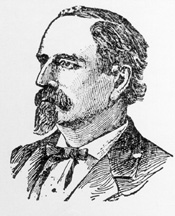
Gilbert Ashville Pierce was an American author, journalist, playwright, and a member of the Indiana House of Representatives, the eighth Governor of Dakota Territory, and representative for North Dakota in the United States Senate. Pierce County, North Dakota was named in his honor.

Robert Jackson Gamble was an American politician who served as a U.S. Representative and Senator from South Dakota. He was the father of Ralph A. Gamble and brother of John Rankin Gamble, members of South Dakota's prominent Gamble family.

William Henry Parker was an American attorney, South Dakota politician, and American Civil War veteran. Parker served as an Assistant United States Attorney for the District of Colorado and was a member of the United States House of Representatives from South Dakota.

Coe Isaac Crawford was an American attorney and politician from South Dakota. He served as the sixth Governor and as a U.S. Senator.

Gideon Curtis Moody was an attorney and politician, elected in 1889 as a Republican United States Senator from South Dakota. He served two years. He also had served five years as an associate justice of the Dakota Territory Supreme Court, from 1878 to 1883, before entering private practice for a period as general counsel for Homestake Mine.

John Lawlor Jolley was a member of the United States House of Representatives from South Dakota.
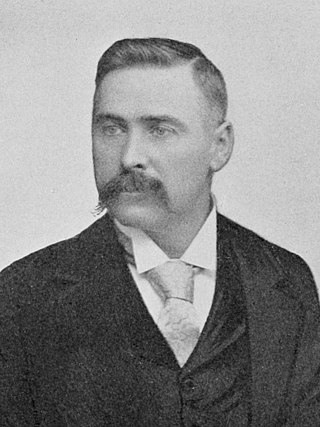
John Edward Kelley was a newspaperman and a politician from South Dakota who served one term in the United States House of Representatives.

John Alfred Pickler was an American politician. He served as a member of the United States House of Representatives.

Charles Hall Dillon was a member of the United States House of Representatives from South Dakota (1913–19). He later served on the South Dakota Supreme Court. He was born near Jasper, Indiana in 1853.
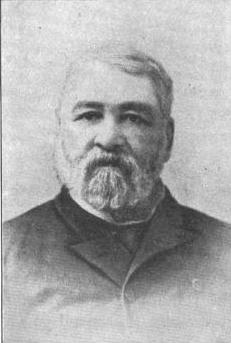
John Fitch Kinney was a prominent American attorney, judge, and Democratic politician. He served as Justice of the Supreme Court of Iowa, twice as Chief Justice of the Supreme Court of the Territory of Utah and one term as the Territory of Utah's Delegate in the House of Representatives of the 38th Congress.
Peter C. Shannon was an American lawyer, politician, and judge. After practicing law for a time in Pittsburgh, Pennsylvania, in 1852, Shannon ran unsuccessfully for a seat in the US House of Representatives, losing by five hundred votes to Whig David Ritchie. Shannon was then appointed president judge of the local district court in 1852 by Pennsylvania Governor William Bigler, but served for only a year, having been defeated for re-election in 1853. At the beginning of the Civil War Shannon became a Republican and was elected to the Pennsylvania House of Representatives, serving two terms, 1862 and 1863. He was commissioned Lieutenant Colonel in a regiment which he helped raise, but resigned to continue his political career. In 1862 he campaigned with Governor Andrew Curtin in his successful re-election bid, and in 1864 was part of Lincoln's re-election campaign in Pennsylvania.
This timeline of South Dakota is a list of events in the history of South Dakota by year.